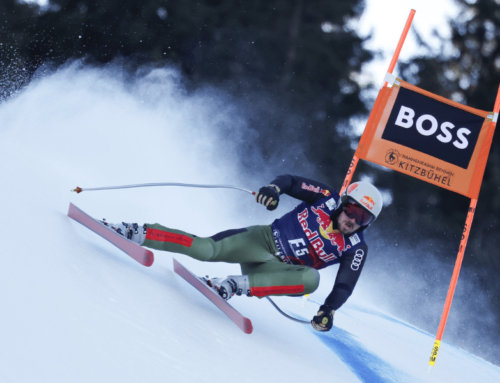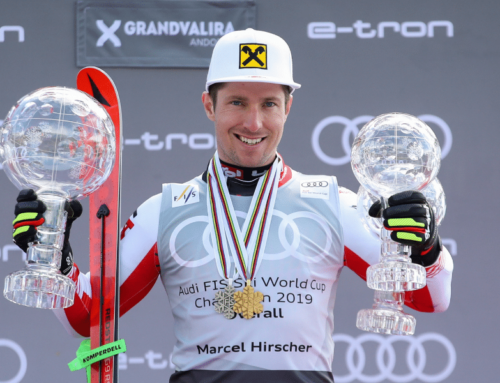How Matt found his own World Cup identity in 2016-17
Meet young Michael Matt, not only “Mario Matt’s brother,” but also a hard-working and committed slalom whiz. This season, the Austrian slalom skier established himself as one of the world’s best slalom skiers.
You finished the season with a fifth-place ranking in the World Cup slalom standings with two podiums and a World Cup win in Kranjska Gora. Did you imagine you would reach all this before turning 24, or did this season exceed your expectations?
I knew from the training before the races started that I had the speed to make it in the top spots, but that I am on the podium already at the first race was a surprise. From that race, I learned that the better you focus on your skiing, the faster you are, and that’s what happened in Kranjska Gora. I didn’t expect anything after the first run, I just wanted to be fast. To claim a World Cup victory was just unbelievable.
This first career win at the highest level must be overwhelming. Can you describe your day in Kranjska Gora?
I knew that I could be really fast on this snow conditions, but it takes a lot to win a World Cup race. On that day, I was just feeling good. Like I did in the races before, so nothing special. But when I was waiting on Stefano Gross in the finish area at the end of the second run, and he was losing more and more time skiing down, I thought to myself that I am ready to win the race. This feeling to be on top of the podium is so amazing that I could not get that smile off my face for three days.

Photo by GEPA pictures/ Daniel Goetzhaber
Your season was not only successes. You had a difficult period in January, struggling to qualify and claim top results. How do you explain this decline in momentum?
Exactly. After Levi and Val d’Isère, I didn’t know how to ski any slower. In January, you have many slaloms, which are really tough and steep. As long as the slope and snow conditions were good, I was fast. Before Kitzbuehel, I got sick. It was very unlucky because you have two races in three days, and it is so important to feel on top form when you are at the start. After Kitzbuehel, we analyzed the videos from training and from the races and came to a decision to change the model of the ski. I then skied on my new settings and proved in the second run of Schladming that it was the right decision and a step forward.
At the World Championships in St. Moritz, you were third after the first run but couldn’t hold on to that placement in the second run and claim a medal. Looking back, is it still frustrating, or do you take it as part of the learning process?
I was very disappointed at the World Championships. It took me longer to come to terms with how I skied at that race and see the positives things than it did at any other race because St. Moritz was the first World Championship where I had a realistic chance to claim a medal.
What are your goals for next season? 2017-18 is an Olympic season. How important is that one race in your mind compared to the World Cup season?
For me, the first race of the season is always very important, especially in slalom. It doesn’t matter if it is an Olympic season or a regular World Cup season. It is very important to just focus on every single race, but of course, a medal at the Olympics is big goal for me. At that one race, everyone is risking more than at a World Cup race, you have to be perfectly prepared physically and especially mentally.
The Austrian slalom team is one of the strongest in the world, and there seems to be an excellent spirit with the other young and successful athletes. In what way does it help to train with this team?
We were very lucky that we could already train with my brother, Reinfried Herbst and Benni Raich three years ago. We could learn a lot every training session with them. From that, we now have a really good base in our team like they had. We push each other to ski faster when fighting for the podium, which is important to improve our skiing.
Your brother is one of the most successful slalom skiers of all time. Can you benefit from his experience? Is the family history an advantage or does it result in lot of pressure for you?
Of course, it’s good to have a brother who had a successful skiing career. He can see when something isn’t right with my skiing and can give me advice to improve. But of course, I have to feel these things myself and I have to be careful not to listen to someone else, as it is me who is racing. There are, however, factors which do affect me negatively with having successful siblings because of always having the comparison to Mario and the pressure to be as successful. The last season has been very important for me to build up my own identity in the World Cup.
Release from FIS





















